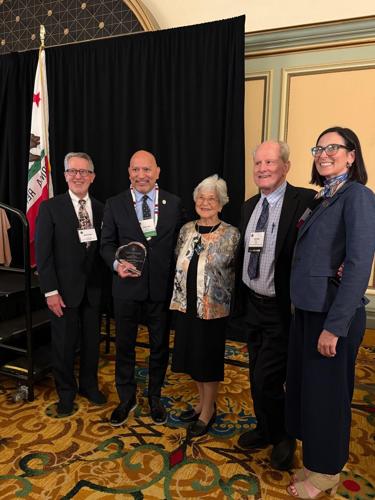California state Judge Johnny Cepeda Gogo has been awarded the prestigious 2025 Alba Witkin Humanitarian Award by the California Judges Association (CJA). This recognition, presented on September 13, 2025, acknowledges Gogo’s dedication to preserving the legacy of Japanese Americans who faced internment during World War II. His work has significantly impacted the community, bringing attention to a pivotal moment in American history.
A Commitment to Historical Legacy
Since his appointment to the Superior Court of Santa Clara County in 2019, Gogo has been at the forefront of initiatives that promote understanding and reconciliation related to historical injustices. He expressed his gratitude for the award, stating, “I accept the award knowing the healing and closure that this 48-star flag signing project has given to the flag signers and their families,” as reported by the Guam Daily Post.
The flag signing project, initiated by Gogo in 2021, aims to gather the signatures of U.S. citizens of Japanese descent who were forcibly relocated to internment camps following the bombing of Pearl Harbor. Gogo’s efforts have garnered widespread interest, leading him to collect signatures on multiple flags, ultimately creating a powerful symbol of remembrance.
From Concept to Community Engagement
The inspiration for the flag signing project stemmed from Judge Roberta Hayashi, who joined the Court’s Community Outreach Committee in 2014. Gogo noted her influence in promoting events surrounding Fred Korematsu Day, an observance dedicated to the civil rights activist who resisted internment and later challenged its legality. Gogo’s involvement in these events as a Deputy District Attorney deepened his commitment to civil rights education.
In his efforts, Gogo obtained a World War I-era, 48-star American flag, intending for it to be signed by survivors of internment. Initially starting with one flag, the response was overwhelming, and he ultimately managed to collect signatures on five flags. Two of these flags were donated to the Japanese American Museums in San Jose and Los Angeles, while others serve different educational purposes, including a flag designated for the Smithsonian Institution.
Gogo’s work not only commemorates the experiences of those affected by internment but also reinforces the importance of historical awareness and education on civil liberties. The legacy of Fred Korematsu is particularly significant; he was a prominent figure who fought against the internment policy, eventually leading to a landmark legal case that exposed governmental wrongdoing.
As Gogo continues his judicial career, his humanitarian efforts exemplify a commitment to justice and education, ensuring that the stories of those who endured injustice are not forgotten. The recognition from the CJA serves as a testament to the impact that dedicated individuals can have on their communities and the broader society.





































































